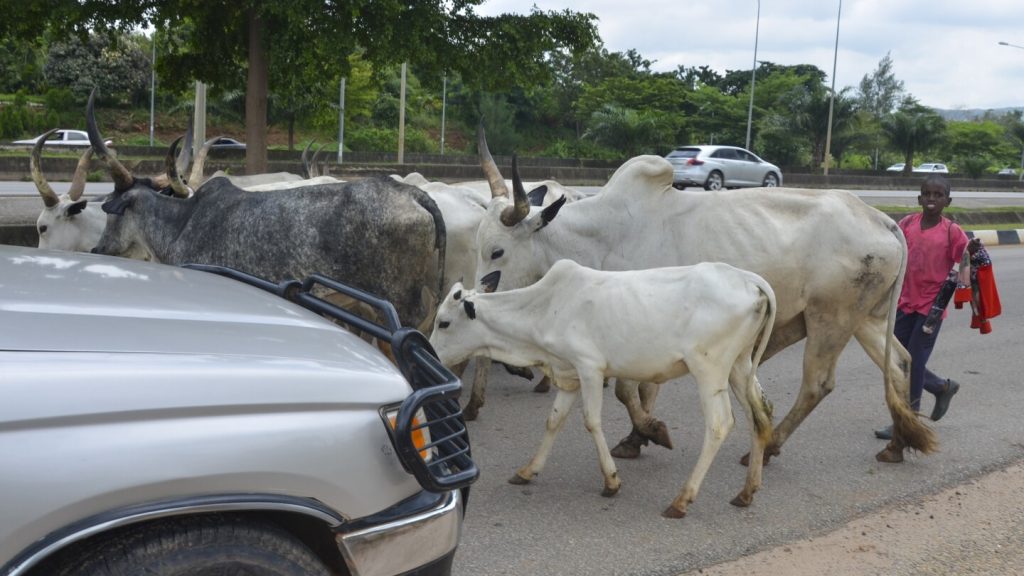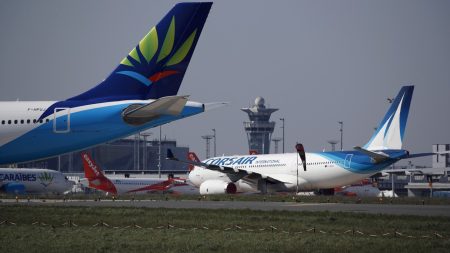Fulani herders like Ismail Abubakar are facing challenges in Nigeria’s capital, Abuja, as urbanization and climate change encroach on their traditional grazing lands. The herders, who are traditionally nomadic and dominate West Africa’s cattle industry, are now forced to navigate the city center in search of pasture for their cattle. The pressures of modernization, land acquisition for housing and crop farming, and human-caused climate change are threatening their way of life. To address the issue, some suggest that herders need to acquire private land and operate like other businesses, but this would require financial support and government incentives.
The government has promised fenced-off reserves for cattle herders and announced plans for a new livestock development ministry to help revive abandoned grazing reserves. However, no minister has been appointed yet, leaving herders like Ismail Abubakar and others without a clear solution. Nigeria is home to over 20 million cows, mostly owned by Fulani herders, making it the fourth largest cattle population in Africa. Despite its size, the dairy market is valued at $1.5 billion, with almost 90% of local demand being met through imports due to the industry’s inefficiencies.
In Abuja, the consequences of the conflict between herders and farmers are visible, with businesses affected by traffic disruptions caused by wandering cattle. The city’s environment suffers as well, leading to increased tensions between herders and landowners. The lack of functioning grazing reserves and necessary infrastructure has forced herders to set up settlements anywhere they can find space, often leading to conflicts with legitimate landowners. The government’s failure to provide appropriate incentives and infrastructure has exacerbated the situation, leaving herders like Mohammed Abbas and Hassan Mohammed struggling to find permanent settlements for their cattle.
Real estate developers in Abuja, like Folawiyo Daniel, are calling for better urban planning and the revival of grazing reserves for pastoralists. It is suggested that designated areas for herding should be established to prevent conflicts with other industries and landowners. Efforts to address the issue are ongoing, with the government responding to concerns raised by diplomats about cattle roaming the streets of Abuja. Herders are open to operating as a normal business and acquiring their own feedstock, provided they have the necessary support and infrastructure in place. The cattle association chief, Baba Ngelzarma, emphasizes the need for government incentives and infrastructure investments to support the livestock industry and reduce the reliance on free pasture.
Overall, the challenges faced by Fulani herders in Abuja reflect larger issues of urbanization, climate change, and land use conflicts in Nigeria. The government’s promises to address the issue are yet to materialize, leaving herders and landowners in a state of uncertainty. As the country’s cattle industry struggles to meet local demand and faces inefficiencies, there is a pressing need for sustainable solutions that support both herders and other industries. The situation highlights the complexities of balancing economic development with environmental and social considerations in a rapidly changing landscape.














